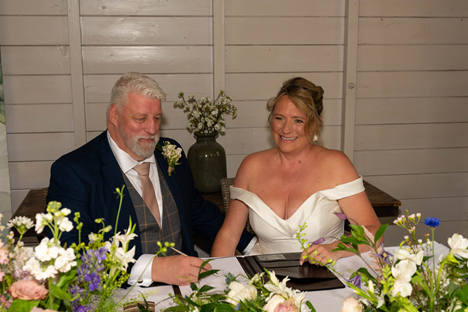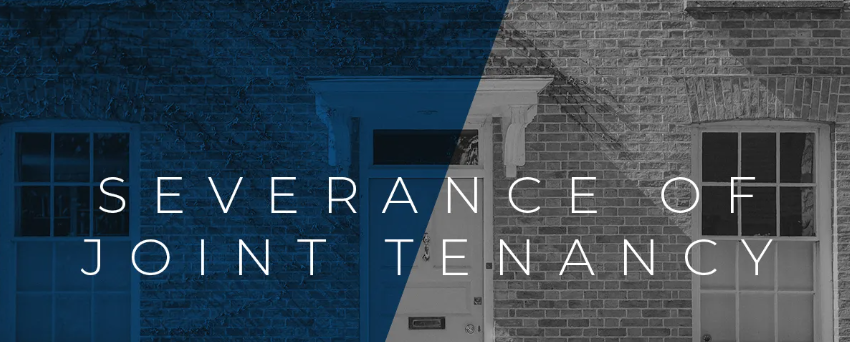Marriage & Divorce & your Will.
Every week, I am told with absolute certainty about the effects of marriage and divorce on a Will. They must be true because “Dave down the pub” told them, which was confirmed by their sister-in-law, who was nearly an accountant 10 years ago.
Many people don’t realise the effects getting married or divorced can have on your estate, whether you die with a Will or intestate (without a Will). For this article, marriage also includes Civil Partnership (CP) unless stated otherwise.
Quick Considerations Checklist.
1) Ask us to check your will and advise you on the consequences.
2) Check Land Registry Titles for ownership of property.
3) Consider if it is better to be tenants in Common or Joint Tenants.
4) Do you want the ex-spouse to be a beneficiary or trustee for children's Trusts in a new will? If yes, you need an S18A Wills Act 1837 exclusion.
5) Provide a copy of divorce papers to check for a Decree Absolute bar on bringing a 1975 Act for reasonable provision application.
6) Check guardianship provisions should the other parent die. Or is there a Child Arrangement Order in place?
7) Clients should revisit the Decree absolute and Consent Order.
8) Ask us about conflicts of interest.
9) Fern Wills & LPAs' privacy and data protection policies bind us, and we will not discuss your estate with anyone without your consent.
10) For advice on Wills or to settle an argument with "Dave down the pub," contact chris@fernwills.com.
Section 1 MARRIAGE

Marriage revokes your will. This means the deceased’s assets will pass following the laws of intestacy because the will is no longer valid.

CONTEMPLATION of MARRIAGE or CP.
If a properly documented clause had been included in the Will in contemplation of marriage, the Will would be valid.
It should have been documented that the Testator (person making the Will) is expected to be married or (CP). The intended needs to be named, and the marriage should be considered within a reasonable timeframe (e.g. 2 years).
The Will must clearly state that it should not be revoked by marriage or the formation of a CP.
What if the current Will contains an in-contemplation marriage clause, and the couple go on to have a civil partnership?
If the current Wills include an in-contemplation of marriage clause and the couple enters a civil partnership, their current Wills will be revoked. Proper drafting can easily avoid this by adding an either-or clause.
Section 2 D.I.V.O.R.C.E

Divorce does not revoke a Will, though it is read as though the divorced person had predeceased (died earlier). When a couple divorces, they may decide to update their Wills only once the decree absolute has been received (the document that means they are legally divorced).
Until the decree absolute is issued, you are still considered legally married to one another. This means that your spouse may still be entitled to benefits under your Will if it has not been updated, which is something most people would want to avoid. Therefore, some clients choose the express service to draft a basic will, removing the spouse. Alternatively, if your financial situation is more complex, clients might choose to create a simple temporary Will to prevent assets from passing to the spouse while more personalised or Trust arrangements are being considered.
Where a couple has commenced divorce proceedings or even before this, we advise them to rewrite their Wills immediately. Unfortunately, no one can know how long their life span is and, therefore, if the spouse was to die before the decree absolute was issued.
In cases of divorce or separation, if you do not want your ex-spouse to benefit from your estate, we recommend including an exclusion clause in your Will explicitly excluding your husband or wife. This should be clearly stated to avoid any misunderstanding. It would be best to consider including a letter of wishes explaining the reasons for the exclusion in case your ex-spouse contests your will. It's important to note that there is a possibility that your ex-spouse could claim your estate if they believe they have not received reasonable financial provision, which is addressed in a separate article.
After your divorce is finalised and a decree absolute is issued, your Will treats your ex-spouse as if they had passed away before you. If your current Will names your ex-spouse to receive your wedding ring or your estate upon your death, that gift will essentially be invalidated. The same would apply to any appointments of the ex-spouse as trustee, executor or guardian.
You should give your Will writer a copy of the divorce settlement financial arrangements to check for any potential conflicts with your new will.
Is the spouse to be included in the new will?
Not all relationship breakdowns end dramatically with bags on front lawns, so we’ll also look at what needs to be considered when drafting a will for someone who wishes to include their soon-to-be ex-spouse. There will be rare cases where divorce is amicable, and the spouse is still to be included in the will, either as a beneficiary of a gift or alternatively as an executor or trustee. A common example may be where the client and spouse have joint children, and the client still wishes for the spouse to act as a trustee for the children’s inheritance. Where the spouse is to be a beneficiary or appointed in a role (such as executor or trustee) in the will, it should be considered whether that appointment will still apply after the divorce or not as S18A Wills Act 1837 will apply. Where a will includes a gift to a spouse or appointment of the spouse and the testator and spouse divorce, S18A takes effect and causes the gift and appointment to take effect as if the spouse had died on the date the marriage ended. This takes effect unless there is a contrary intention in the Will. In the event that the Will includes gifts or appointments of the spouse, and the client wishes these to still apply after the divorce, the will would need to include an exclusion of S18A.
Inheritance 1975 Act concerns
Where the spouse is to be excluded from the Will or only receive a limited benefit, the spouse may still make an application under the Inheritance (Provision for Family and Dependants) Act 1975 due to lack of reasonable provision from the estate, and this could still apply after the divorce. It is commonplace, however, to include within the Decree Absolute a bar on each party from bringing an application under the 1975 Act for lack of reasonable provision under S15 of the Act. This is, however, not always the case.
Children and Guardians
Where the client and spouse have children together, assuming both parents have parental responsibility (which will be the case where the couple are opposite sex), the client should be aware that any guardianship appointment in their will could not take effect on their death if the other parent survives them. The only exception to this would be the client has a Child Arrangements Order (previously residence orders and contact orders) in force naming them as a person with whom the client was to live (unless the order was also made in favour of a surviving parent of the child).
After the divorce
A person's estate may change dramatically after a divorce, and a Will made before the divorce may no longer reflect your wishes. It is advisable to review existing Wills after the Decree Absolute and Consent Order are issued to ensure that they still align with your intentions. In this situation, it is also recommended that clients provide copies of the Decree Absolute and Consent Order to determine if there are any terms that may impact their ability to distribute their estates.
Conflicts of Interest
Where a will writer originally prepared a will for a spouse and one wishes to rewrite their Will following the breakdown of the relationship, they would need to consider whether they have a conflict of interest. This does not have a particularly simple answer and would depend on the facts of each case, for example, the terms of the original will, whether both parties are being retained as clients and whether the divorce has been finalised or not. This would need to be reviewed on a case-by-case basis. In the event that there is a potential conflict of interest in preparing a new will, they may need to refuse to act for one or both clients and recommend they seek independent advice.
SEVERANCE OF TENANCY

It is also wise to sever the tenancy on any jointly owned property held to prevent it from passing automatically to the separated spouse. This will enable each spouse to gift their share of the home as they wish rather than passing by survivorship. Mutual severance is preferred (Both agree and sign). However, unilateral severance (one person serves severance against the other) is an option, though this involves more work and costs.


